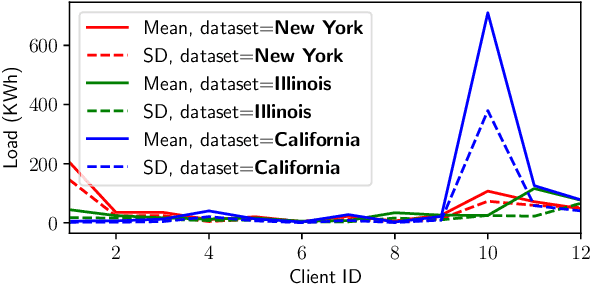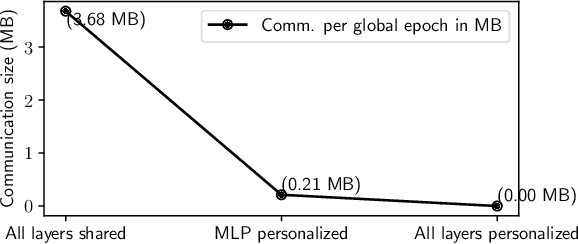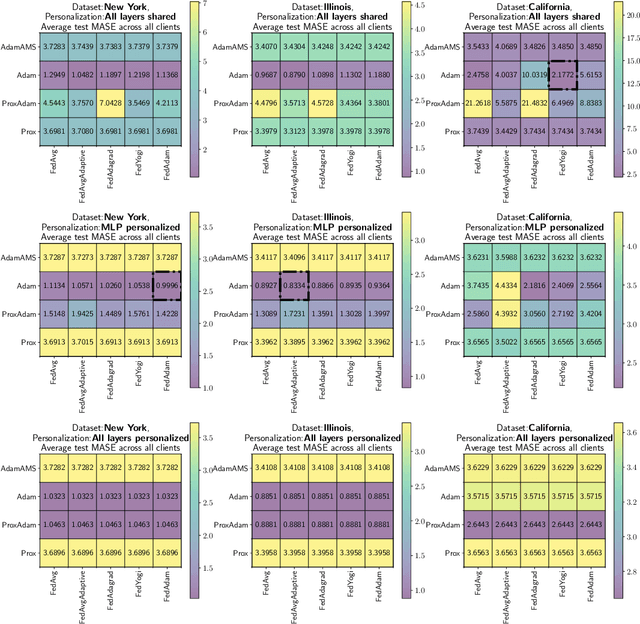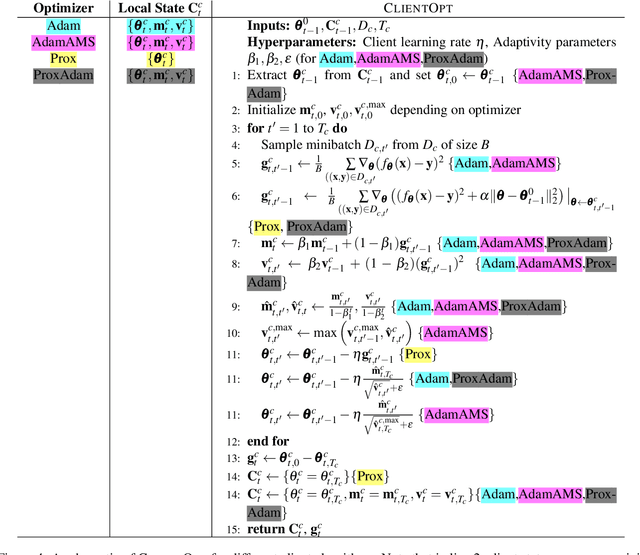Addressing Heterogeneity in Federated Load Forecasting with Personalization Layers
Paper and Code
Apr 01, 2024



The advent of smart meters has enabled pervasive collection of energy consumption data for training short-term load forecasting models. In response to privacy concerns, federated learning (FL) has been proposed as a privacy-preserving approach for training, but the quality of trained models degrades as client data becomes heterogeneous. In this paper we propose the use of personalization layers for load forecasting in a general framework called PL-FL. We show that PL-FL outperforms FL and purely local training, while requiring lower communication bandwidth than FL. This is done through extensive simulations on three different datasets from the NREL ComStock repository.
 Add to Chrome
Add to Chrome Add to Firefox
Add to Firefox Add to Edge
Add to Edge